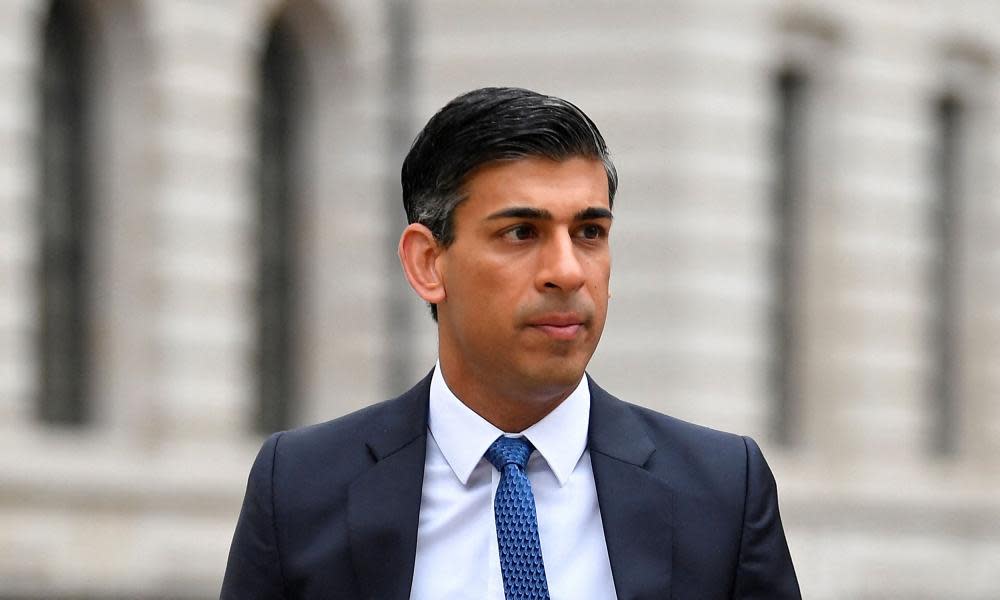Rishi Sunak reportedly considering windfall tax on electricity generators

Rishi Sunak is reportedly considering imposing a wider windfall tax on electricity generators, as well as on oil and gas producers, that could bring in billions of pounds to help households struggling with soaring food and energy costs.
The chancellor has instructed Treasury officials to work on plans for a potential tax on more than £10bn of excess profits made by electricity generators, including renewable energy operators such as windfarms, according to sources cited by the Financial Times.
That would go far beyond Labour’s plan for a one-off levy applied only to North Sea oil and gas producers, which would raise an estimated £2bn. Profits on these firms are taxed at 30% corporation tax plus a 10% surcharge, but Labour has proposed raising the combined rate from 40% to 50%.
Related: Windfall tax: which cabinet ministers are for and against it?
Oil and gas producers have benefited from rocketing global energy prices amid Russia’s war in Ukraine. Higher gas prices have pushed up wholesale prices across the electricity market, including for some producers of renewable and nuclear power.
Shares in the biggest electricity generators fell sharply on Tuesday. Drax, which owns a large power station near Selby in North Yorkshire, tumbled 14%, while British Gas owner Centrica fell 8% and SSE 7%.
Government estimates suggest electricity producers could have made more than £10bn in excess profits as a result of higher gas prices, the FT reported.
The chancellor appears to have shifted his position after initially opposing a windfall tax. He said earlier this month that he was “pragmatic”, saying “no options are off the table” if oil and gas companies did not raise investment in the UK economy.
However, Royal London Asset Management, a big UK fund manager, raised concerns about a windfall tax on electricity generators, including renewable energy developers.
Mike Fox, the head of sustainable investments, said: “The social consequences of higher energy prices cannot and should not be ignored. However, levying additional taxes on businesses directly investing in renewable generation feels contradictory to the UK’s desire for greater energy independence and a greener power system that can help to deliver a net zero economy.
“The government has other tools which it could use to both raise funds to help tackle the cost of living crisis and encourage greater investment in the UK’s green economy, such as encouraging the crown estate to unlock more seabed for offshore wind.”
The Investec analyst Martin Young was also sceptical about the idea. He said: “A windfall tax on generation could possibly jeopardise much-needed investment, and could see higher returns demanded [by electricity generators].”
He noted there were huge investment needs in electricity generation such as offshore wind, nuclear and hydrogen storage.
“Longer term, neither would be good for the consumer or the net zero pathway. Cost of energy crisis? Yes. Insufficient action so far by government? Yes. A windfall tax on generators the right answer? No. Be careful what you wish for. The spectre of intervention, however, could weigh on the generators.”
The Bernstein analyst Deepa Venkateswaran was sceptical about the £10bn excess profit figure. She said: “We believe that the Treasury has grossly overstated the potential take from a windfall tax on renewable generators and shaken investor confidence in the sector, as can be seen from the share price reaction today, which we believe is an overreaction.”

 Yahoo Movies
Yahoo Movies 
